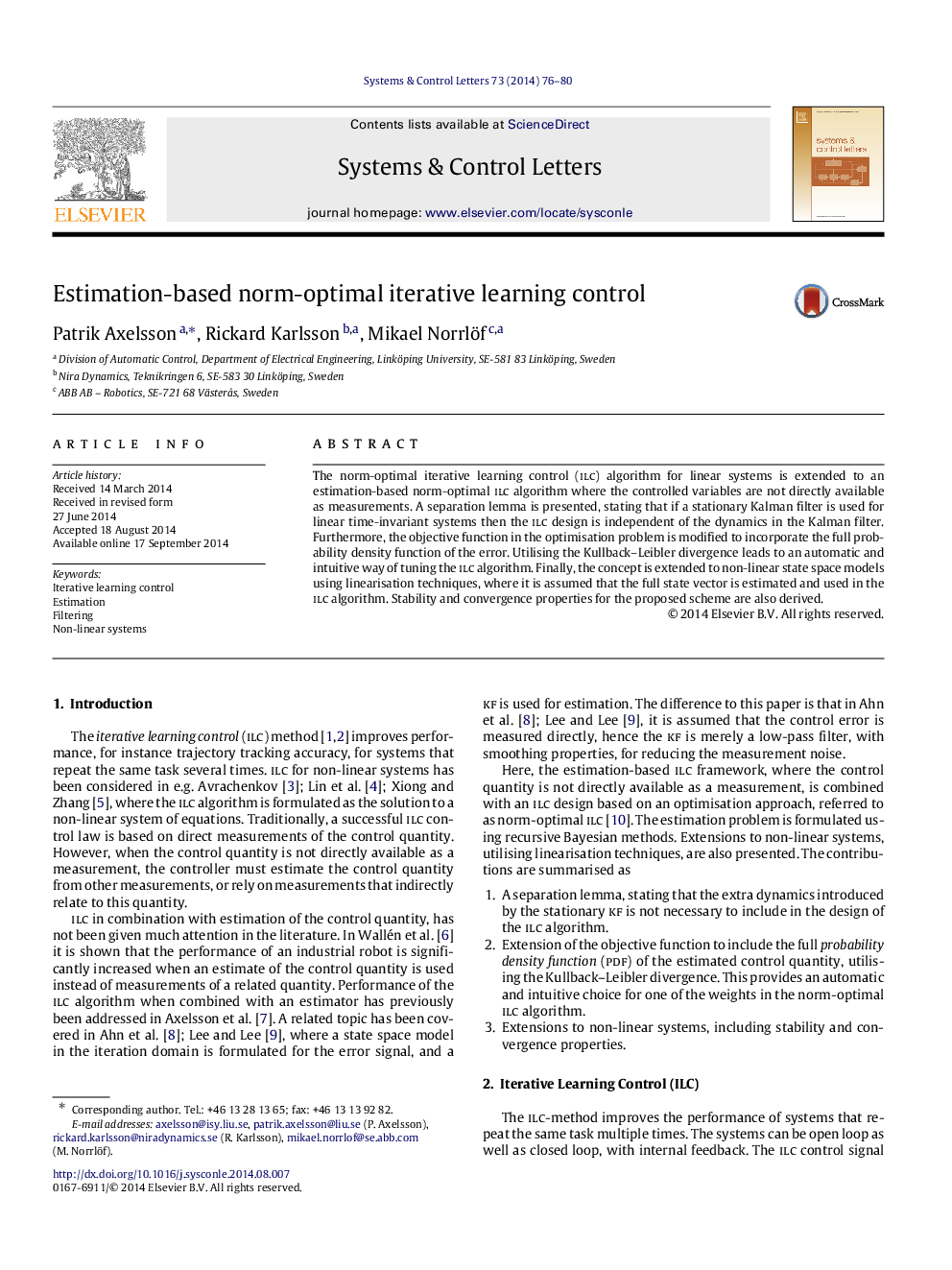| Article ID | Journal | Published Year | Pages | File Type |
|---|---|---|---|---|
| 7151785 | Systems & Control Letters | 2014 | 5 Pages |
Abstract
The norm-optimal iterative learning control (ilc) algorithm for linear systems is extended to an estimation-based norm-optimal ilc  algorithm where the controlled variables are not directly available as measurements. A separation lemma is presented, stating that if a stationary Kalman filter is used for linear time-invariant systems then the ilc  design is independent of the dynamics in the Kalman filter. Furthermore, the objective function in the optimisation problem is modified to incorporate the full probability density function of the error. Utilising the Kullback-Leibler divergence leads to an automatic and intuitive way of tuning the ilc  algorithm. Finally, the concept is extended to non-linear state space models using linearisation techniques, where it is assumed that the full state vector is estimated and used in the ilc  algorithm. Stability and convergence properties for the proposed scheme are also derived.
Related Topics
Physical Sciences and Engineering
Engineering
Control and Systems Engineering
Authors
Patrik Axelsson, Rickard Karlsson, Mikael Norrlöf,
